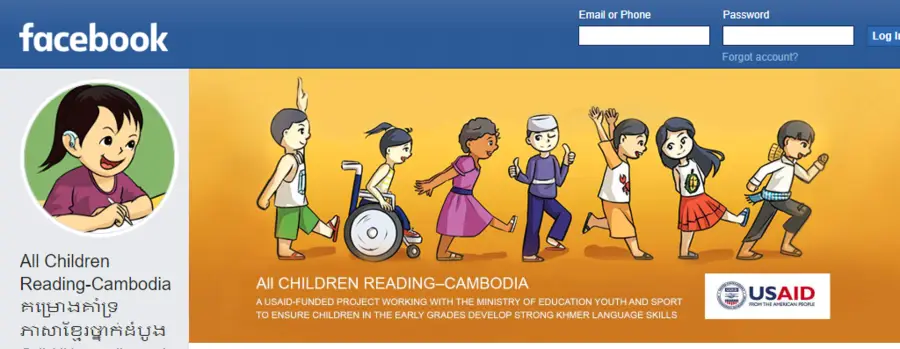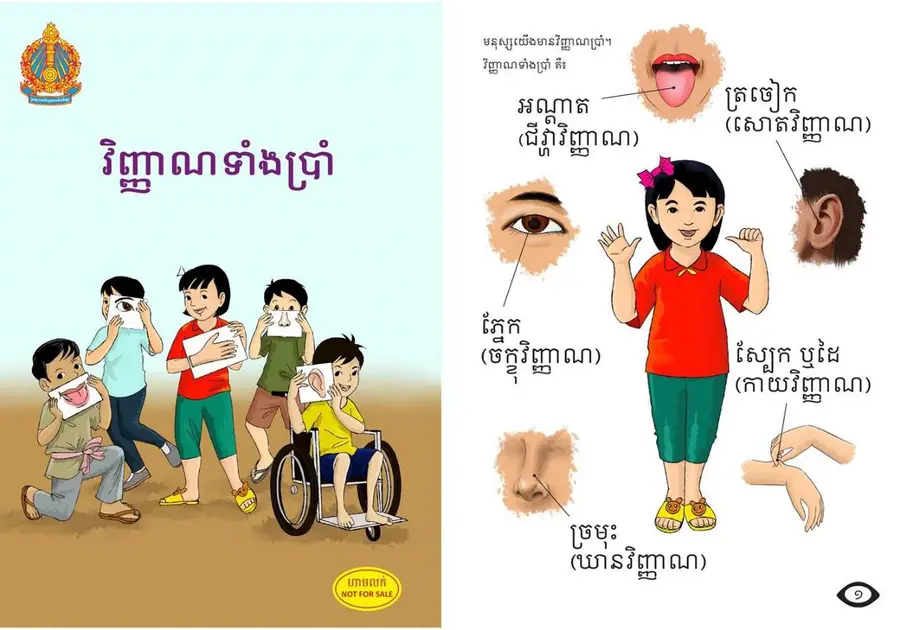Responding to COVID-19 education challenges in low-resource settings
In March 2020, the government of Cambodia made the difficult decision to close schools due to the global COVID-19 pandemic. Since this announcement, the All Children Reading–Cambodia project has been working to ensure students are practicing reading and writing skills every day at home using online tools that parents are familiar with, like Facebook and YouTube, alongside encouraging use of printed books provided with funding from the U.S. Agency for International Development (USAID).
Helping children to learn at home online can be difficult for parents around the world, even in well-resourced environments. In Cambodia, the situation is particularly challenging, as most families don’t own computers, and many parents have limited IT skills. However, Facebook is commonly used on smartphones even in rural households. Therefore, the project has concentrated on using this existing medium to reach parents and children.
The week that schools closed, All Children Reading–Cambodia began posting simple story books as albums of images on Facebook every day, with three sets of activities designed for students in preschool, grade 1, and grade 2, to practice age appropriate reading and writing skills with their parents. A video of each story was also posted including in Cambodian Sign Language and audio. The audio is especially useful for parents and caregivers who are not confident readers or have difficulty reading the text on a screen.


The project’s team of dedicated literacy coaches, who are normally responsible for visiting teachers and supporting them to use the new methods and materials developed under the project, began to set up Facebook Messenger groups with each teacher and parents in their class.
Every day the literacy coach sends the story and the appropriate activity for that grade along with a voice message to explain the activity for that grade. Parents can ask questions to the teacher and coach, and many have been posting videos of their children reading and writing, helping them feel connected to their classmates.
[My child’s] teacher added me to the Facebook messenger group and it’s easy as I can see the activity each day, and listen to the voice message and understand how I can help my child at home each day.” –Mother of a grade 2 child in Kampong Thom province.
Anticipating long school closures, the project has begun to adapt students’ regular lesson content for use on Facebook. Working with the Ministry of Education, Youth and Sport (MoEYS), the project team developed online materials that students and parents can use to learn new content that would have been covered in coming months in the classroom. Different lessons for each of the three grades are posted every day, which are also shared with parents, both on the public Facebook page, and in the messenger groups along with voice messages.

However, social media won’t reach all children. Some families don’t have smartphones, or they live in areas where cell signal is weak, or they can’t afford data to access this content. To address this gap, the literacy coaches have also been working with schools and their communities to emphasize low-cost, low-technology ways of helping students to continue learning.
Coaches, teachers and school directors send messages to parents that even very simple activities like reading one lesson each day, along with writing out some of the words, can help students continue to learn. Parents who don’t have access to Facebook receive weekly phone calls.
In the coming weeks and months, the project will be working with the MoEYS, private-sector partners, and community leaders to broaden access to the online content, as well as communicating broadly that low-tech solutions, such as reading at home every day, can also make a big difference to ensure students continue to strengthen their literacy skills.
- U.S. Agency for International Development (USAID)
- World Education
- Room to Read
- Save the Children
- World Vision

